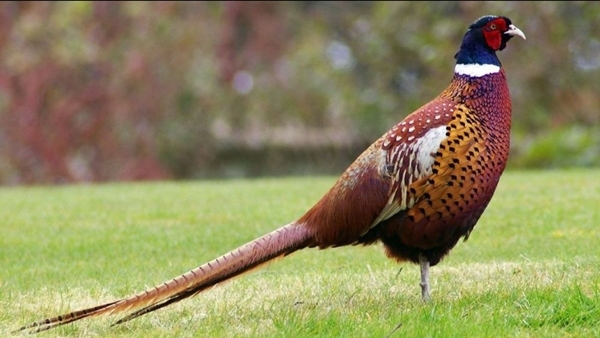
On 27 March Natural Resources Wales, on behalf of Welsh Government, launched a 12-week public consultation on their proposals to license gamebird releasing in Wales. It is absolutely critical that everyone with an interest in shooting in Wales, whether from Wales or not, responds, offering constructive and considered views. The number and quality of responses will be incredibly important, so please share the links with others (family members, friends, colleagues and associates) and encourage them to respond.
We welcome the fact that NRW has based its licencing proposals on GWCT guidelines, which are written into The Code of Good Shooting Practice. However, based on the available evidence, we do not deem that forced, permanent regulation is a proportionate response and believe it would put at risk the huge environmental and economic contribution of game management in Wales.
To counter the lack of evidence, in addition to the NRW consultation, we are also asking those releasing game in Wales to respond to a short (5 minute) GWCT survey here.
While it is important that every respondent share their own views on the proposals and personal experience with NRW, we appreciate that guidance from the GWCT is helpful particularly on scientific evidence and technical issues. We are, therefore, sharing our responses to questions 4 – 8 having carefully considered the implications of the proposals.
Questions 9, 10, 11 and 12 all refer to the Welsh Language. As a game and wildlife conservation charity it is not within our remit to advise on this matter.
Below are summaries of the questions 4-8 and guidance on how to respond.
4) Do you agree or disagree that pheasants and red-legged partridges should be moved on to Part 1 of Schedule 9 or the Wildlife and Countryside Act 1981?
GWCT would prefer to see continued self-regulation for released game shoots in Wales. Based on the available evidence, we do not deem that forced, permanent regulation is a proportionate response. GWCT therefore, does not agree that common pheasant and red-legged partridge should be added to Part 1 of Schedule 9 of the Wildlife and Countryside Act 1981 in Wales. Were NRW to recommend regulation through licensing, there is a danger it becomes a gateway to further restrictions.
Long term commitment for shoots to continue investing in productive habitat management would require assurance from Welsh Government that they recognise the conservation value of sustainable game shooting and its contribution to a thriving rural economy and the wellbeing of local communities. To date messaging from the Welsh Government has been highly negative resulting in suspicion from those investing in the sector that licensing will lead to a ban.
5) Are NRW’s licensing proposals effective and proportionate?
We are reassured that NRW intends to use the GWCT’s sustainable releasing guidelines, which are based on peer reviewed science, as the basis for its proposed licences. These guidelines are written into The Code of Good Shooting Practice, which is endorsed and supported by all the countryside organisations. However, GWCT finds no evidence to justify licensing. Despite their rapid evidence assessment, there is little research available to suggest that released game shoots in Wales are damaging the environment.
Dr Joah Madden’s Evidence Report 680 produced as part of this consultation states “This review makes it clear that there is currently little reliable evidence about the scale, extent, history or methods of gamebird release and management in Wales. The estimates that I can calculate are subject to large errors, of around 2.5 fold and the extrapolations that I make are often based on restricted and perhaps skewed data”. Furthermore, NRW should consider the risk to privately funded conservation efforts in Wales that occurs as part of good practice game management.
By installing regulatory licensing, only guaranteed annually, which could be revoked at any time, those who release gamebirds in Wales may not deem investment in habitat management and other conservation practices to be sensible. Jobs connected with the sector could be lost, and there could be a negative economic impact on other associated businesses in rural areas.
6) Should partridge stocking densities be based on the same measure as that for pheasants?
As cover crops for partridges add to overall biodiversity on shoots, it is wrong to regard any potential ecological damage to this habitat in the same way as pheasants released into natural woodland. Conditions within the regulations for partridge releases should therefore reflect this lower risk for ecological damage. IF NRW are to go ahead with their proposals to regulate through licensing, GWCT recommends that red-legged partridge release proposals be based on a density threshold linked to the area of land they inhabit, with the stipulation that releases occur into cover crops on arable land or improved grassland rather than semi-natural or unimproved habitats.
7) Should one third of available woodland be used for release (as per GWCT guidance) and is there a way to better determine this calculation?
Whilst we sympathise with NRW that a stricter calculation would be preferable, there is no alternative approach which can be universally undertaken and would not involve complicated mapping exercises for each release location. We therefore recommend that NRW should include the proposal that no more than one third of woodland with game interest should be used for release pens, IF they go ahead with their licensing proposals.
8) Should small scale releases not be subject to their proposals?
GWCT has provided the sector with sustainable releasing guidelines based on our scientific research. These guidelines are endorsed and supported by all the Countryside Organisations. We therefore do not believe that small shoots releasing less than 1,000 birds should not be expected to adhere to these guidelines. Whether shoots are small or large should not matter when it comes to following the Code of Good Shooting Practice.
- You can then respond here when ready >